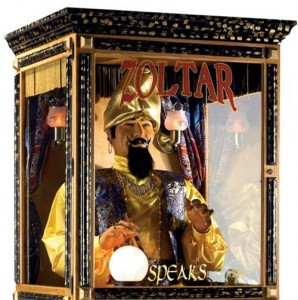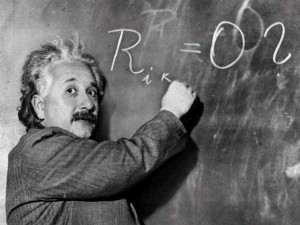I ran across one of those old fortune-telling machines in an antique store in New Orleans. More than 100 years old, it proudly sat near the entrance of the store. Created in a time before bathroom scales, it promised to accurately tell us how much we weighed, and as an added bonus, our future.
This one had a note that said, “Mechanism works, but out of cards.” It was on the little cards that your “fate” was inscribed.
Fast forward 100 years and some of us still believe that our future is already written. We believe in the “destiny” of meeting-up with special friends. We might have our fortunes read or pay to have our astronomical charts interpreted for us. We say that certain things “were just meant to happen.” We discuss fortune cookies over a plate of Chow Mein.
But I’m not buying it. It’s not that I don’t think these activities aren’t fun. It’s not that I can’t even see an element of truth in them. It’s that I know I’m always at choice.
Instead of “fate,” I just see these predictions as “possibilities.”
When I hear a prediction like, “The economy is bad, so you won’t get the raise.” I know that this is only one possibility. When the doctor says, “Your mother died of heart disease, so we need to watch your cholesterol,” I hold open the possibility for a different outcome for me. Anytime something or someone appears to “predict” my future, I stop and think. Is this really what I want?
I believe it’s up to me.
Science of Mind teaches that our thoughts and beliefs control what happens to us. Knowing this, if I change my thinking—if I create a new set of beliefs—I should be able to influence what happens to me.
I am able to live a long life—despite what happened to my parents. I am able to have healthy relationships—no matter what the ones from my childhood looked like. I am able to claim a measure of abundance and comfort—whether the economy is “up” or “down.”
If I believe, it is so.
Free will may not be entirely free. It requires believing, strongly, in what we want to experience. It requires changing some of our core beliefs and acting upon these beliefs even before we can see evidence of those changes. It means accepting a greater measure of life—even when other peoples’ lives may seem full of fear and doubt.
But it is possible to achieve everything that you desire. It is possible to bring your thoughts, ideas, feelings and intentions into alignment with what you want to experience. It is possible to write out your own fate according to your closely held expectations.
In short, it’s up to you!




